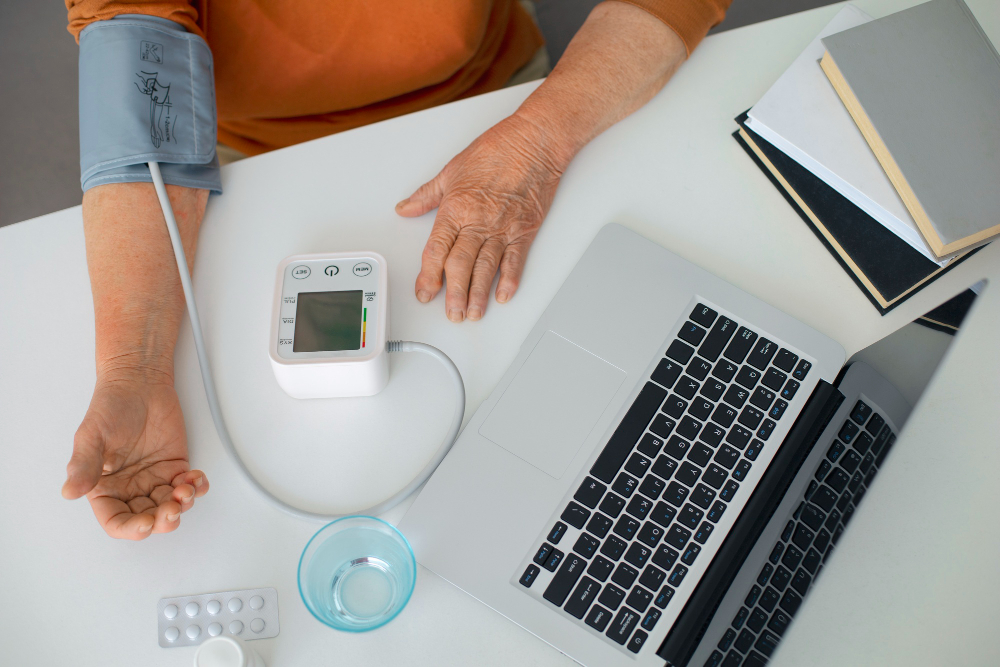Table of Contents
Most people would not think to connect a blocked nose with rising blood pressure. But if you live with both sinus issues and hypertension, you may have already noticed it.
Even when your blood pressure is usually well controlled, it can rise during a sinus infection or allergy flare. There is a connection, and it is important to understand how your sinuses might be affecting more than just your breathing.
Read the full blog to understand how this happens.
What Happens When Sinuses Flare Up
Your sinuses are small air pockets behind your cheeks, forehead, and nose. They produce mucus, which helps trap dust, allergens, and other unwanted particles. This mucus drains into your nose and keeps the system flowing.
But when an infection hits, the lining of the sinuses swells. That swelling blocks normal drainage. The body responds with inflammation, and that inflammation puts the whole system under pressure.
For some people, this inflammation passes quickly. For others, especially those with asthma, allergies, or structural issues like polyps, the swelling sticks around. And when your immune system stays activated for days or weeks, your blood pressure can begin to climb.
It may not seem obvious, but chronic inflammation in the body, even from sinus issues, can place extra strain on your heart over time.
What You Need to Know About Medications
One of the biggest concerns I see with sinus patients who also have high blood pressure is medication choice. Many over-the-counter cold and sinus medicines contain ingredients that work well for congestion but not for your heart.
Decongestants like pseudoephedrine and phenylephrine work by narrowing the blood vessels in your nose. But they also narrow blood vessels throughout your body. This forces your heart to pump harder and can raise your blood pressure. For someone with already elevated numbers, this can be risky.
Look closely at the labels. If you see ingredients like pseudoephedrine, phenylephrine, or oxymetazoline, it is best to avoid them. Instead, you can try antihistamines like cetirizine or loratadine. Saline sprays are another safe option to help clear the nose. There are also cold medications made specifically for people with high blood pressure, like Coricidin.
If you are not sure what to take, ask your ENT doctor or pharmacist. A quick check can prevent a bigger problem later.
How Sinus Issues Can Disrupt Sleep and Raise Blood Pressure
Congestion does not only affect you during the day. It can also interfere with your sleep.
When your nose is blocked at night, your body may struggle to get enough air. This can lead to mouth breathing, snoring, or even sleep apnea. Sleep apnea is a condition where breathing stops and starts during sleep, and it is closely linked to high blood pressure and heart problems.
If you wake up tired, feel foggy during the day, or notice that your partner hears you snoring, do not ignore it. You may be dealing with a combination of sinus congestion and disrupted sleep that is affecting your blood pressure more than you realise.
Sometimes improving sinus health can improve sleep quality. And better sleep often means better blood pressure control!
What You Can Do
If you are living with high blood pressure and also have frequent sinus problems, here are a few small steps that can help.
- Stay away from decongestants that raise blood pressure
- Use saline rinses or gentle antihistamines instead
- Drink plenty of fluids and use a humidifier to keep your airways moist
- Rest when symptoms flare up
- Speak to your SinusDoctor if nasal congestion is affecting your sleep
Managing your sinus health is not just about relieving discomfort. It is also about supporting your overall well-being.
Final Thoughts
Allergies and sinus infections may not directly cause high blood pressure. But the medications you take, the way your body responds to inflammation, and the sleep disruptions that follow can all add up.
If you are noticing a pattern between your sinus issues and your blood pressure, do not brush it off. You do not have to figure it out on your own.
Let us talk about it. Book a consultation with Dr. Chaitanya Rao here. Together, we can create a plan that supports your sinuses and protects your heart. For more such insights, check out The Sinus Book.
